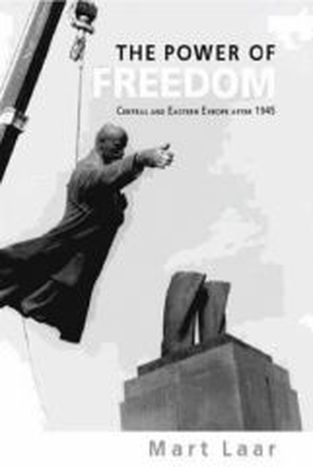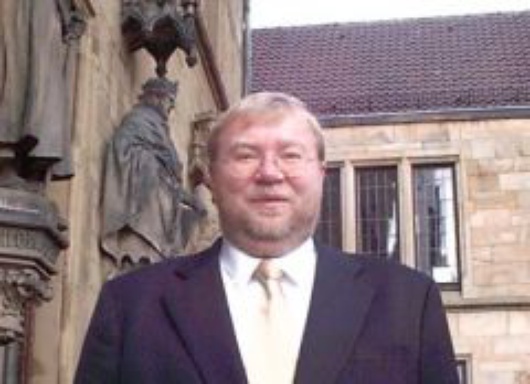
"We must talk more about freedom"
Published on
A new book on Central and Eastern Europe after 1945 has been born. Another one, yes, but the difference with all the others is that this book aims to compare some of the new democracies, arisen after the fall of the Soviet empire. And thus far, this has never been done before.
In The Power of Freedom, Mart Laar wants everyone to understand what happened, and the best way to achieve this understanding is by comparison. According to Mart Laar, the freedom that was lost after World War II and regained after the fall of the Iron Curtain, that freedom, would not be there if it weren't for a lot of people. It's our common history: the history of united Europe.
With the support of the European Parliament, UNITAS Foundation, and the Centre for European Studies (CES, the think-tank of the European People Party (EPP)), Mart Laar's dream of writing this book finally has come true. He had been wanting to do this for quite some time, but now the time has finally arrived. Together with Marko Mihkelson, "The power of freedom - Central and Eastern Europe after 1945" has become a tangible reality, solid matter, instead of just a hazy, distant dream.
 Mart Laar is Chairman of the IRL Party and former Prime Minister of Estonia. With this book, he wants to stress the importance of the fight for freedom, not only in the past, but also the ongoing fight for freedom, still fought today, all over the world, including in the West. "We must talk more about freedom," Laar says. But next to stressing the grand importance of the power of freedom, Laar wants to give a view on what happened after the Communist yoke was discarded. New democracies arose and over time these joined "the European political family". In comparing these new nations, he wants to help people understand what happened.
Mart Laar is Chairman of the IRL Party and former Prime Minister of Estonia. With this book, he wants to stress the importance of the fight for freedom, not only in the past, but also the ongoing fight for freedom, still fought today, all over the world, including in the West. "We must talk more about freedom," Laar says. But next to stressing the grand importance of the power of freedom, Laar wants to give a view on what happened after the Communist yoke was discarded. New democracies arose and over time these joined "the European political family". In comparing these new nations, he wants to help people understand what happened.
Photo: Mart Laar © Flickr/Jens-Olaf
According to Wilfried Martens, President for EPP and President of CES, Mart Laar's book serves these two purposes very well. First, he mentiones "understanding the history of the societies that spent 40 years under a communist yoke and helping everyone understand their struggle for freedom". Second, Martens agrees that this struggle for freedom is an ongoing, daily practise and "should become a standard for political behaviour".
The enlargement of Europe Laar calls one of the successes of united Europe. But are things really better for everyone? 20 years have passed since the fall of the Berlin Wall, the symbolic end of the Soviet empire. Laar admits: "Of course Communism was not all bad. There was work, justice and so on." And still, you have to wonder, have things really changed for the better on "the former Soviet side of the Iron Curtain"? Does everyone enjoy the greater stability and prosperity in this united Europe?
Even though you will find a lot of dates and historical facts in this book, Laar really tries to tell a story. A story as seen from "the people's side", of people overcoming their fear and never giving up their fight for freedom. In this book, the people of Central and Eastern Europe are the protagonists. It's because of them Europe was united and is now free. Either way, with this book Mart Laar is the first to compare the recent history of Central and Eastern Europe. And if we can take his word for it, the struggle for freedom will continue still...
Mart Laar: "The Power of Freedom - Central and Eastern Europe after 1945"
"An excellent reminder of a unified Europe and the power of freedom" - Tomi Huhtanen, CES director.
"Narrative, intimate and personal" - Wilfried Martens, CES President and President of EPP



